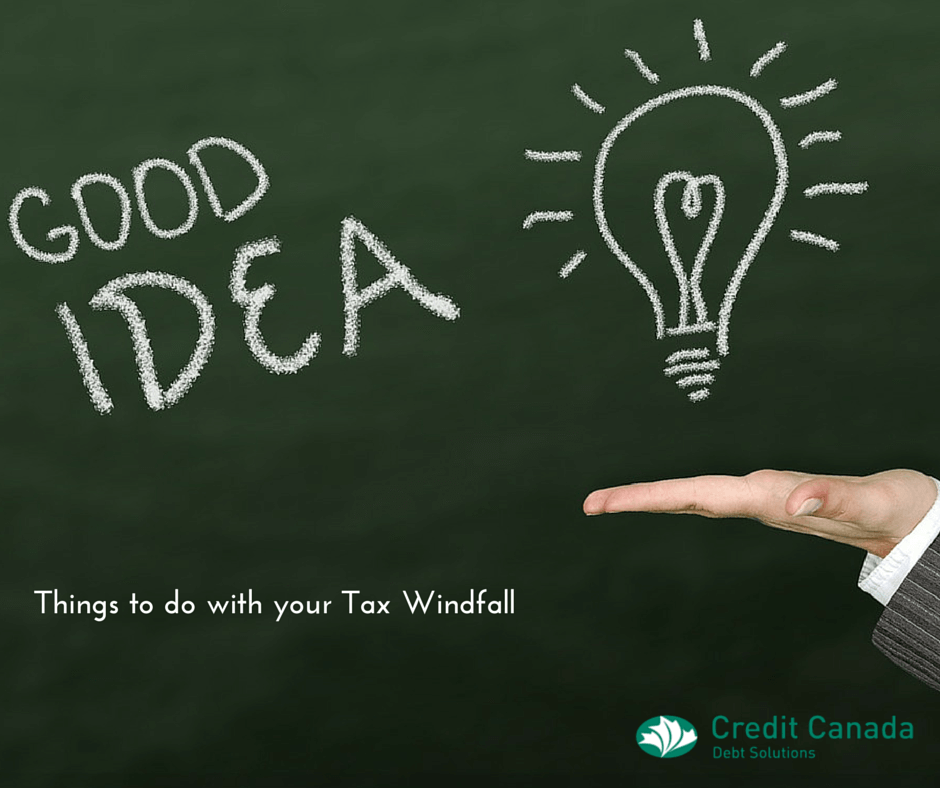
So you hit the jackpot! You just got a windfall (from the government) and you are waiting to blow it somewhere before it burns a hole in your pocket. Vacation? Visit to the casino? Could you use an Apple watch? A bet on March Madness?
Not so fast. If you do get a tax refund from your upcoming return just remember it’s not ‘found money’ and can be used effectively as a part of smart financial planning. Could there be smarter choices to utilize it? Could it be time to spend it on the most important asset you know? Like yourself? Here are some ideas:
- Pay down your high-interest debt. Paying down your debt should be the first thing for you to do when planning your finances. That credit card. You’re underwater with your overdraft account again. That 10 year-old student loan? Extra money can go a long way and take away a big chunk of your debt. If you want to find out how long making minimum payments will take on these debts, take a look here.
- Time to invest in yourself. That accounting course. The yoga class. Becoming handy? Have you been thinking of joining a gym? Whatever you do, do your homework and ensure you are getting real value for your money.
- Invest in an RRSP. It’s a good time to confirm if you have contribution room left and see if you can contribute more to your RRSP. This will mean additional tax savings for you next year and assist your future retirement.
- Donate to your favourite charity. Want to find out about a charity or cause you really love? Check out canadahelps.org, see if the charity is registered and see how it stacks against your perception. And especially if there is a tax receipt for your donation.
- Pay your bills. You probably forgot about that hydro, water or gas bill. Time to get it out of your hair with your chunk of change.
- Start an emergency fund. There’s nothing like having extra money in a savings account for emergencies. Think of the accumulated interest on your deposit over a period of time. Planning your finances can turn your return into a smart investment.
- Gift it to yourself. Taking a trip to the museum, Art Gallery, wine country. Taking a well-deserved break can really help you re-charge your batteries. You may even want to buy something you wanted for a while
These are some of my ideas about what you can do with your tax refund? If you have better ideas (and I’m sure you do), I would love to hear them.
Frequently Asked Questions
Have a question? We are here to help.
What is a Debt Consolidation Program?
A Debt Consolidation Program (DCP) is an arrangement made between your creditors and a non-profit credit counselling agency. Working with a reputable, non-profit credit counselling agency means a certified Credit Counsellor will negotiate with your creditors on your behalf to drop the interest on your unsecured debts, while also rounding up all your unsecured debts into a single, lower monthly payment. In Canada’s provinces, such as Ontario, these debt payment programs lead to faster debt relief!
Can I enter a Debt Consolidation Program with bad credit?
Yes, you can sign up for a DCP even if you have bad credit. Your credit score will not impact your ability to get debt help through a DCP. Bad credit can, however, impact your ability to get a debt consolidation loan.
Do I have to give up my credit cards in a Debt Consolidation Program?
Will Debt Consolidation hurt my credit score?
Most people entering a DCP already have a low credit score. While a DCP could lower your credit score at first, in the long run, if you keep up with the program and make your monthly payments on time as agreed, your credit score will eventually improve.
Can you get out of a Debt Consolidation Program?
Anyone who signs up for a DCP must sign an agreement; however, it's completely voluntary and any time a client wants to leave the Program they can. Once a client has left the Program, they will have to deal with their creditors and collectors directly, and if their Counsellor negotiated interest relief and lower monthly payments, in most cases, these would no longer be an option for the client.






